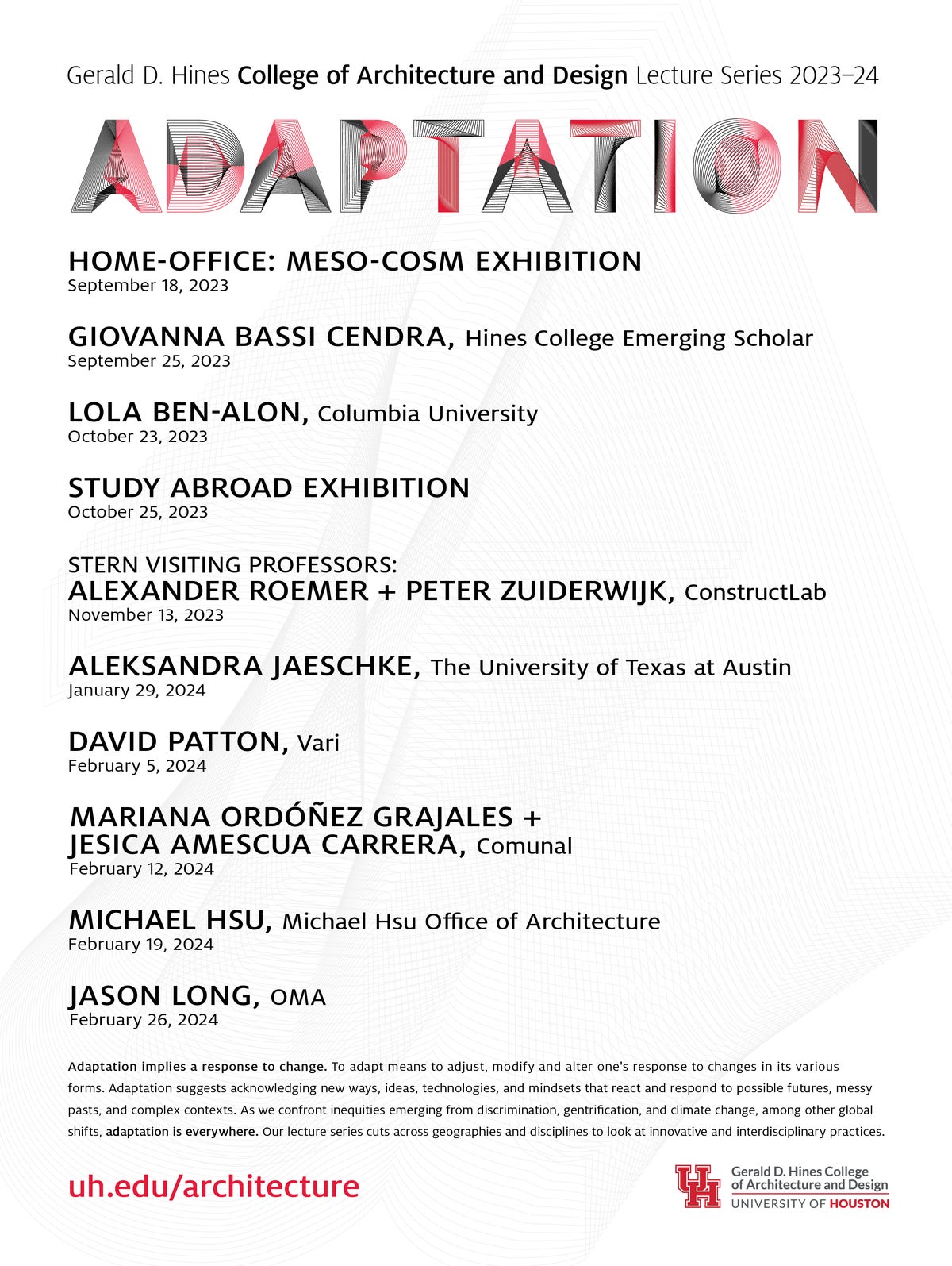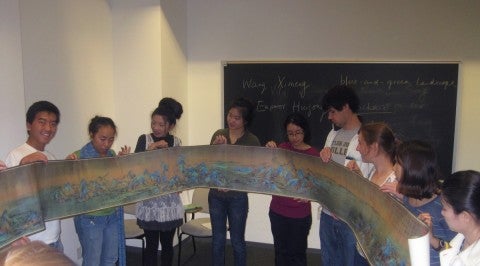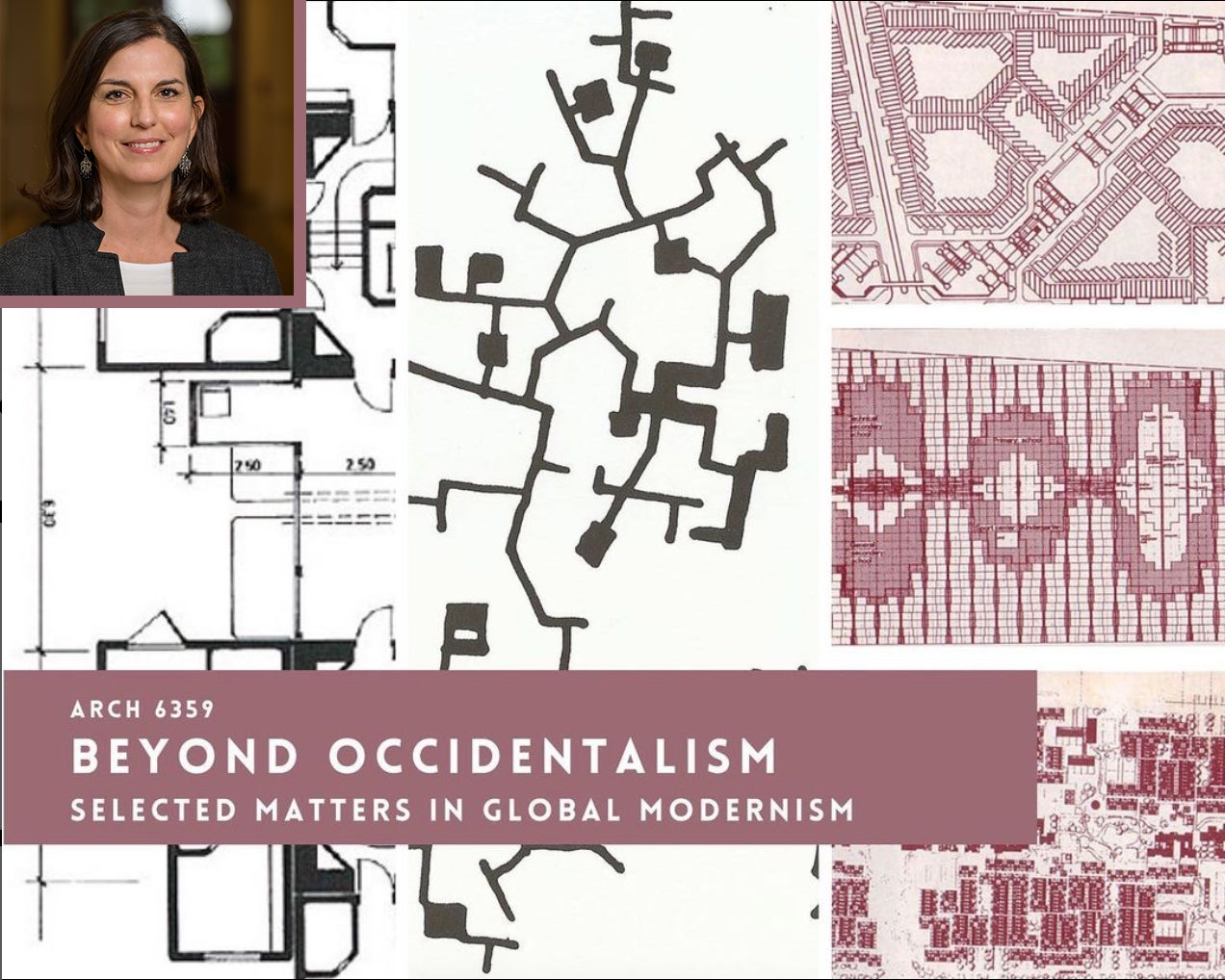Giovanna Bassi Cendra, Art History PhD candidate, was awarded the University of Houston’s Gerald D. Hines College of Architecture and Design Emerging Scholar Fellowship and is currently teaching a new graduate architecture course at University of Houston this fall.
“ARCH 6359- Beyond Occidentalism: Selected Matters in Global Modernism” explores concerns in architecture and urban planning that have shaped the global construction of modernity. Ever since the Modern World System emerged in the 15th century, the construction of modernity and the built environment has taken place through conflict and pacification, through migration and the dynamic exchange of ideas, populations, natural resources, and goods. In other words, this process has been first and foremost, a collective global project. Yet, most of what the historiographical canon presents as “modern architecture and urbanism”—even that built in and for the Global South—has been in fact designed by agents from Europe or the United States. This persistent erasure of the contributions of marginalized populations—in terms of ideas, labor, and resources—inflicts great violence upon them, as the work of anthropologist Fernando Coronil suggests.This course aims to address the historiographical bias by placing canonical texts and works of modern architecture and urbanism in conversation with non-canonical ones. Rather than offering a comprehensive survey organized by geographical or epochal categories, this course offers opportunities to reflect upon selected matters that have shaped modern design across distinct regions of the world.
As the Hines College Emerging Scholar, Giovanna will also be a featured speaker in the College of Architecture and Design’s Adaptation Lecture Series on September 25, 6:00pm with her presentation “Extractive development and the architecture of the modern university in Chile, 1950-1970.” More information can be found at the Hines College website.
Originally trained as an architect, Giovanna specializes in the history of modern Latin American art and architecture. Her current research focuses on the entanglement of architecture with the ideologies of “development” and extractive capitalism in South America during the postwar period. Her ongoing dissertation project, which interrogates the planning, design, and construction of university campuses vis-à-vis the intensification of mining and oil extraction in the region, has received the Carter Manny Research Award from the Graham Foundation for Advanced Studies in the Fine Arts in 2020, as well as support from the Rockefeller Foundation and the Wagoner Foreign Study Scholarship.



